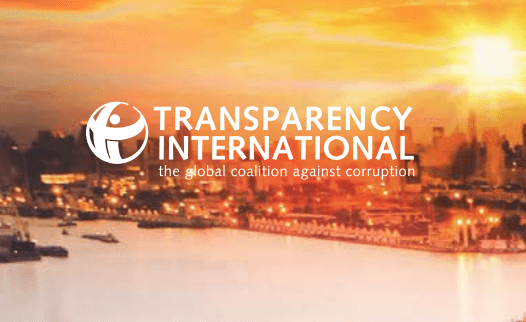Turkey’s legal framework and enforcement system are inadequate to fight corruption, Transparency International said in its recent report on the bribery of foreign public officials.
According to the 2020 “Exporting Corruption” report, fewer of the world’s biggest exporters are actively investigating and punishing companies paying bribes abroad. Turkey is listed in the “Little or no Enforcement” category, with very low scores on each of the stages of enforcement of anti-bribery laws abroad.
The report rates the performance of 47 leading global exporters in cracking down on bribery of foreign public officials by companies operating abroad. It shows how well – or poorly – countries are following the rules. Forty-three countries that are signatories to the Organisation for Economic Co-operation and Development (OECD) Anti-Bribery Convention are included in the study.
Countries in the report are classified into four enforcement categories: Active, Moderate, Limited and Little or no Enforcement. Countries are scored based on the number of investigations commenced, cases opened and cases concluded with sanctions over a four-year period (2016-2019). Different weights are assigned according to the stages of enforcement and the significance of cases.

According to the report more than 20 years after the convention was adopted, most countries still have a long way to go in meeting their obligations. Active enforcement has significantly decreased since the last report in 2018.
The report cites the lack of a properly functioning judicial system and inadequacies in the enforcement system as the main reasons Turkey was placed in the “Little or no Enforcement” category. According to Transparency International inadequacies in the enforcement system could be caused by a variety of factors including a lack of independence of judicial institutions or sufficient resources for handling complex cross-border cases.
The report raised concerns about the independence of judges and prosecutors in Turkey. The country’s judicial system has been under the spotlight, especially since constitutional amendments were enacted in 2018 that changed the structure of the Board of Judges and Prosecutors (HSK) to give more control to the executive over the judiciary.
The HSK is the top judicial administrative body overseeing the appointment, assignment, authorization, promotion and discipline of judges and prosecutors. According to a report by the Office of the UN High Commissioner for Human Rights, the appointment system for the HSK “does not abide by international standards, such as the Basic Principles on the Independence of the Judiciary.” The UN also noted that a situation “where the executive is able to control or direct the judiciary is incompatible with the notion of an independent tribunal.”
Turkey’s judicial system was crippled by summary dismissals in the aftermath of a controversial coup attempt in July 2016. The Turkish government declared a state of emergency following the abortive putsch and dismissed more than 4,000 judges and prosecutors without any due process, in open disregard of guarantees afforded to judges and prosecutors. The purge included some members of the country’s top courts, the Constitutional Court and the Supreme Court of Appeals. Turkey’s national police department was also badly affected by the purges, with over 33,000 police officers summarily removed from their jobs. All the purged officials were accused of membership in or ties to “terrorist organizations.”
Transparency International is a global movement working in over 100 countries to “stop corruption and promote transparency, accountability and integrity at all levels and across all sectors of society.” Through advocacy, campaigning and research, the organization works to expose the systems and networks that enable corruption to thrive, demanding greater transparency and integrity in all areas of public life.
Source: SCF



